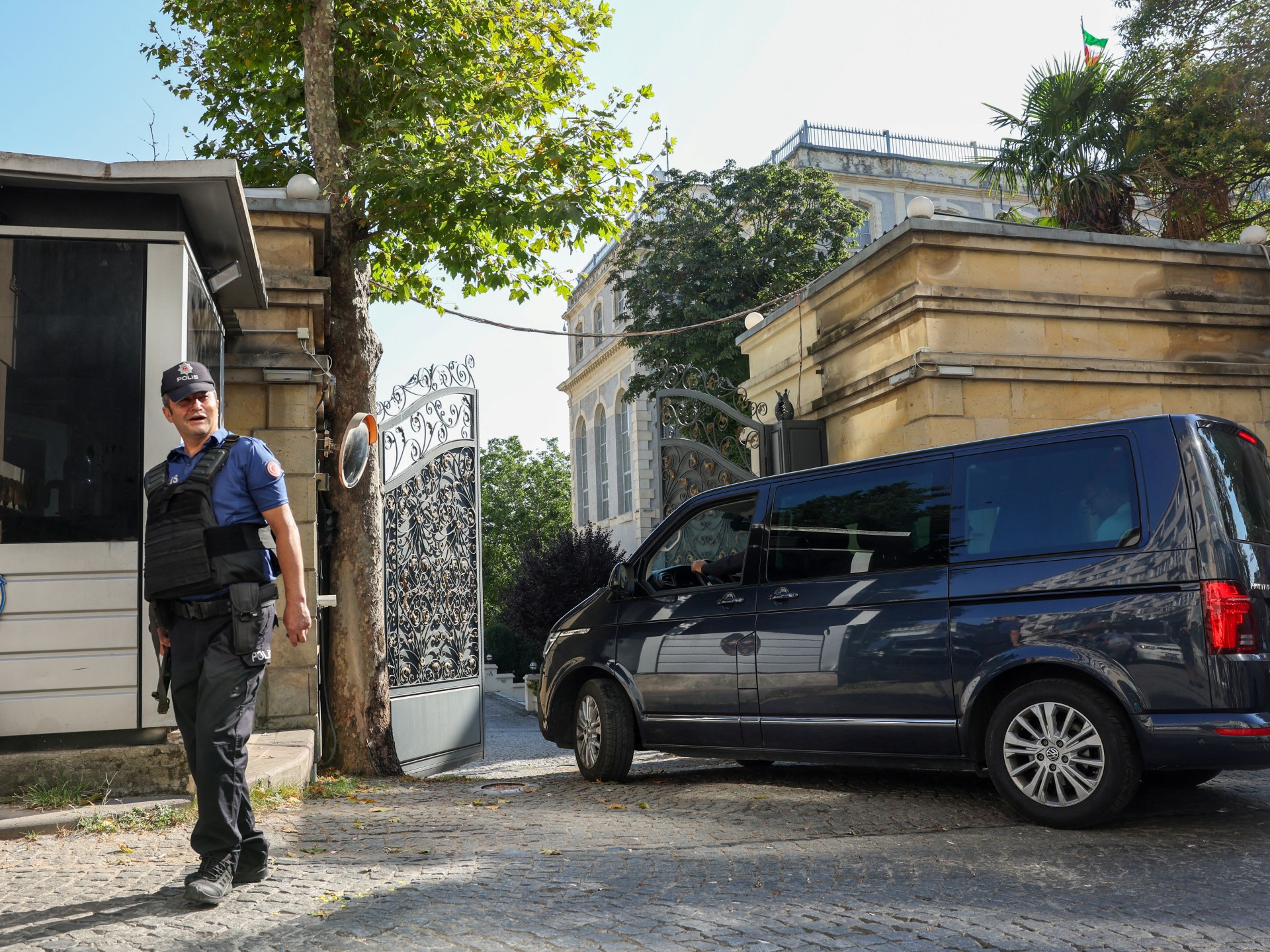In response to concerns that the three European countries might re-engage with Iranian diplomats in nuclear negotiations, according to warnings made by the three countries’ previous 2015 agreements.
The meeting, which is taking place in Turkiye’s Istanbul on Friday morning, is the first since Israel launched an intense 12-day conflict in which the United States militarily intervened on behalf of Israel and attacked important Iranian nuclear sites, starting in mid-June.
Top commanders, nuclear scientists, and hundreds of civilians were killed as a result of Israel’s offensive, which also affected residential areas and caused the US-Iran nuclear talks to end in April.
Iran claimed on Friday that the meeting will give the so-called E3 group from Germany, the UK, and France the chance to change their positions on Iran’s nuclear issue. According to Esmaeil Baghaei, a spokesperson for the foreign ministry, Iran considers the discussion of extending UN Security Council Resolution 2231 to be both “meaningless and baseless.”
The resolution is scheduled to expire in October, ratifying the 2015 agreement Iran and the world powers reached in exchange for urgent sanctions relief. It guarantees the right of the big powers to rescind UN sanctions.
The “snapback mechanism,” which would reinstate the sanctions against Iran by the end of August, was reportedly threatened by the E3 since then as a result of the moribund 2015 nuclear agreement that US President Donald Trump unilaterally tore up in his first term.
Tehran has warned of the consequences if the E3 chooses to activate the snapback, and the option expires in October.
This week, senior Iranian diplomat Majid Takht-Ravanchi and Iranian deputy foreign minister Kazem Gharibabadi warned that enacting sanctions “is completely illegal.”
After the US withdrew from the deal, he also accused the European countries of “halting their commitments.”
Gharibabadi stated, “We have warned them of the risks, but we are still looking for common ground to manage the situation.”
Tehran’s warning
Iranian diplomats have previously warned that Tehran might withdraw from the world’s nuclear non-proliferation treaty if UN sanctions are reinstated.
Iran’s already constrained economy would be put under more pressure if sanctions were to be reinstated, which would increase its standing abroad.
Gideon Saar, the foreign minister of Israel, has urged the world to activate the mechanism. Two days before Tehran and Washington were scheduled to meet for a sixth round of nuclear negotiations, Israel launched an attack on Iran on June 13.
Fordow, Isfahan, and Natanz were among the US nuclear facilities that were struck on June 22.
Prior to the conflict, Washington and Tehran had differences regarding uranium enrichment, which Iran has called a “non-negotiable” right for civilian purposes, while the US called it a “red line.”
Iran enriches uranium to a 60% purity, according to the International Atomic Energy Agency (IAEA), far above the 3.67 percent cap set forth in the 2015 agreement’s requirement for weapons-grade levels.
Tehran has stated that it is not interested in negotiating uranium enrichment rates and levels.
Iran reportedly began reversing its commitments a year after the US pulled out of the nuclear deal, which had put restrictions on its nuclear activities in exchange for sanctions relief.
Iran is accused of pursuing nuclear weapons by Israel and Western powers, a charge Tehran has consistently refuted. In the run-up to the June conflict, both US intelligence and the IAEA claimed to have seen no indication of Iran’s intention to develop nuclear weapons.
Enrichment is “stopped.”
Iran insists it will continue to maintain its nuclear program, which Abbas Araghchi, the country’s foreign minister, dubbed “national pride.”
The US bombing’s full scope of damage is still a mystery. Trump has claimed that the sites have been “completely destroyed,” but US media reports have cast doubt on how much of the destruction has been done.
According to Araghchi, enrichment is currently “stopped” due to “serious and severe” harm to nuclear sites brought on by US and Israeli attacks.
Iranian President Masoud Pezeshkian stated in an interview with Al Jazeera on Wednesday that Iran was ready for another war and that it would continue to use its nuclear arsenal in accordance with international law. He added that the nation had no intention of pursuing nuclear weapons.
Iran has stopped cooperating with the IAEA because of the 12-day conflict, accusing it of being biased and not to condemn the attacks.
Inspectors have since left the nation, but a technical team is expected to return in the coming weeks, as per Iran’s promise that future cooperation will take “new form.”
Source: Aljazeera

Leave a Reply